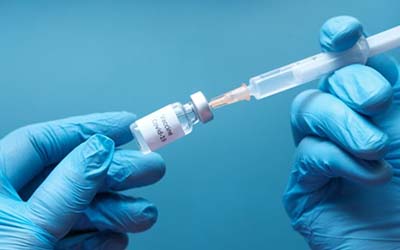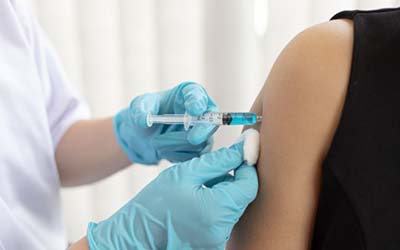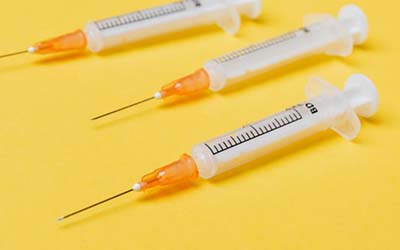
Michigan has Administered 7 Million Vaccines

FOR IMMEDIATE RELEASE May 3, 2021 Media Contact: [email protected]
Governor Whitmer & Lt. Governor Gilchrist Announce Michigan has Administered 7 Million Vaccines To date, 50% of eligible Michiganders have received at least one dose of the vaccine.
LANSING, Mich. — Governor Gretchen Whitmer and Lt. Governor Garlin Gilchrist today issued the following statements as Michigan is set to surpass seven million vaccine doses administered.
“Today, Michigan will surpass seven million doses administered of the safe, effective COVID-19 vaccines,” said Governor Whitmer. “We’ve put shots in arms of 1 in 2 Michiganders 16 and up and over 1 in 3 are fully vaccinated, including 2 in 3 seniors. Our rollout continues to speed up. We administered six million doses in just over four months. As we get closer to achieving our goal of equitably vaccinating 70% of Michiganders 16 and up, we have to remember that we are still in this fight against the virus. Our case count and hospitalization rates are a reminder that we must continue following basic public health protocols we know work: masks, social distancing, and hand washing. The way to put this pandemic behind us, however, is to get vaccinated. The vaccine is the most effective way to protect you, your family, and your community and get us back to normal sooner. Together, we will emerge from this pandemic stronger than ever and celebrate summer together with friends and family. We will become the state that beats this damn virus.”
To date, 50% of Michiganders have received at least one dose, with 38% of Michiganders being fully vaccinated, moving the state closer to its goal of equitably vaccinating at least 70% of Michiganders ages 16 and older as soon as possible.
“Since Michigan began our vaccine rollout, Governor Whitmer and I promised that every Michigander who wanted a vaccine would receive one safely. We are now seven million doses closer to that goal, well ahead of schedule,” said Lt. Governor Gilchrist II. “Every dose brings us closer to reaching our goal of equitably vaccinating at least 70% of Michigander’s ages 16 and older as soon as possible, but as we get closer to achieving our goal, we have to remember that we are still in this fight against the virus. Together, we will emerge from this pandemic stronger than ever. We can end this virus on our terms by ensuring that everyone eligible to receive a vaccine gets one. The COVID-19 vaccine has been tested for safety and is trusted by doctors. From smallpox to polio and now COVID, vaccines have a long history of hope and healing. The COVID-19 vaccine is our best shot to being free from this pandemic, and the quickest way for our lives to return to normal is for everyone to get vaccinated.” |




